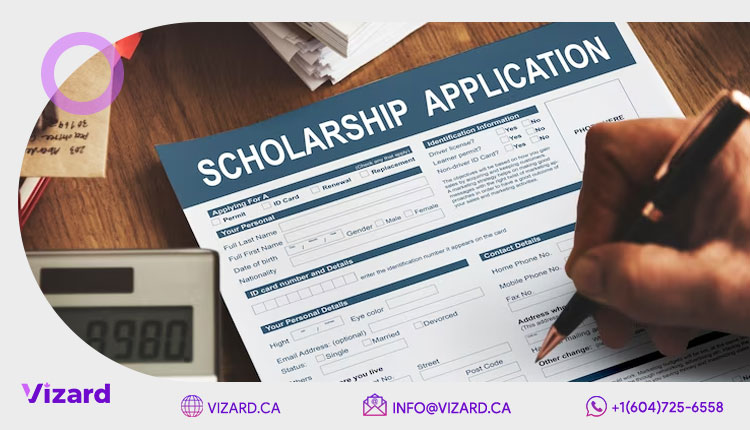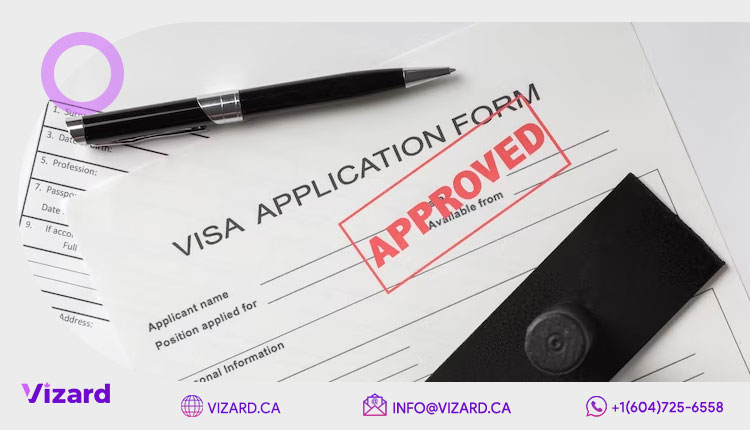

Please fill out our free eligibility assessment form. Our experienced immigration consultants/ lawyers will assess your form and help you explore your options, guiding you through the immigration process. If you have a deadline approaching, please feel free to book an appointment with us to ensure that you don’t miss out on any opportunities.
A study permit is a document issued by Immigration, Refugees and Citizenship Canada (IRCC) that allows international students to study in Canada. To be eligible for a study permit, you must have been accepted by a designated learning institution (DLI) in Canada and must have proof that you have sufficient funds to cover your tuition and living expenses while you are in the country. You may also need to provide a police clearance certificate, a medical exam, and other documents as part of your application.
To apply for a study permit, you will need to fill out an application form and submit it to the IRCC along with the required documents. The processing time for study permit applications can vary, so it is important to apply as early as possible.
If you are approved for a study permit, you will be allowed to stay in Canada for the duration of your studies, up to a maximum of three years. You may be able to extend your study permit if you need more time to complete your program of study.

There are no new rules for international students that have recently come into effect. However, the requirements for obtaining a study permit may change from time to time, so it is important to check the Immigration, Refugees and Citizenship Canada (IRCC) website for the most up-to-date information.

Designated learning institution (DLI)
A designated learning institution (DLI) is a school in Canada that is authorized by the federal government to host international students. To be eligible to study in Canada on a study permit, you must have been accepted by a DLI and have a letter of acceptance from the institution.
DLIs include universities, colleges, and other educational institutions that offer programs of study leading to a degree, diploma, or certificate. Some DLIs may also offer language programs or other non-degree programs.
To find out if a particular institution is a DLI, you can check the Immigration, Refugees and Citizenship Canada (IRCC) website or contact the institution directly.

Tie to home country
To show that you will leave Canada at the end of your studies, you may be asked to provide evidence of ties to your home country, such as:
You may also be asked to provide a letter of explanation outlining your reasons for wanting to study in Canada and your plans after you complete your studies.
It is important to be honest and truthful in your application and to provide as much evidence as possible to demonstrate your ties to your home country and your intention to leave Canada at the end of your studies.
Funds
To apply for a study permit for Canada, you must have sufficient financial resources to cover your tuition and living expenses while you are in the country. This means that you must have enough money to pay for your tuition, accommodation, food, transportation, and other necessary expenses for the duration of your studies.
There are several ways you can demonstrate that you have sufficient funds for your studies in Canada, including:
It is important to have all the necessary documentation and evidence of financial support ready when you apply for a study permit, as this is an important part of the application process.
Justifying Gap in your educational background
If you have a gap in your educational background and are
applying for a study permit for Canada, you may be asked to provide an explanation for the gap as part of your application.
There are many reasons why you may have a gap in your
education, such as taking a break to work, travel, or care for family members.
Whatever the reason for the gap, it is important to be honest and transparent in your application and to provide a clear and concise explanation of the circumstances that led to the gap.
You should also provide any relevant supporting documentation, such as proof of employment or a letter from a doctor, to help explain the gap in your education.
How to apply for Study permit
To apply for a study permit for Canada, you will need to
follow these steps:
Statement of purpose
A statement of purpose is a document that you may be required to submit as part of your study permit application for Canada. In this document, you will be asked to explain your reasons for wanting to study in Canada, your academic and professional goals, and your plans for after you complete your studies.
The statement of purpose should be well-written and clearly articulate your motivations and objectives. It should also demonstrate your English or French language proficiency, as well as your academic and professional achievements.
The statement of purpose is an important part of your study permit application and will be taken into consideration by Immigration, Refugees and Citizenship Canada (IRCC) when reviewing your application. It is important to put thought and effort into writing your statement of purpose and to proofread it carefully before submitting it.

Changing your school or program
You need to contact IRCC, and change conditions on your study permit in your online account.
you must submit a new study permit application with a new letter of acceptance. You must also pay all the fees for the new application.
You must inform IRCC that you changed your DLI by submitting a new letter of acceptance using the IRCC web form.
If you change post-secondary schools, it is important to confirm that the new school you plan to attend is a designated learning institution (DLI) on the DLI list. You must inform Immigration each time you change post-secondary schools, and changing the school on your account is a free service. You do not need to apply to change your study permit if you are changing schools.
Post-secondary studies include university, community college, private university, career college, English or French as a Second Language (ESL/FSL) training, and other language training programs at institutes, CEGEPs, academies, or schools.
If your study permit is still valid, you do not need to change or apply for a new permit if you are moving between school levels, such as:
This applies as long as the move is within the same educational institution or to a new institution that is a designated learning institution (DLI).
Extend your study permit in Canada
To extend your study permit in Canada, you need to follow these steps:
· are currently studying in Canada on a valid study permit;
· have maintained full-time status in your studies;
· have not completed your program of study; and
· Have a valid passport or travel document.
Who can apply for a study permit from inside Canada?
Generally, you must apply for a study permit before you come to Canada. Some people can apply for a study permit from within Canada. In some cases, you can apply when you arrive in Canada at the port of entry. In the following situation you can apply for a study permit from inside Canada:

International Student’s Spouse Open Work Permit
Your spouse or common-law partner may be eligible for an Spouse open work permit if you:
Obtaining a spouse open work permit typically takes several months to process. The length of time it takes can depend on various factors. The spouse open work permit will be valid for the same period as your study permit.
Students can apply for their dependents to join them in Canada
You may be able to bring your dependents, such as a spouse or children, to live with you in Canada while you are studying as a visitor, student, or worker. Dependents can apply to join you either:
In general, their study permit, work permit, or visitor record will be valid for the same length of time as your study permit. If a dependent’s passport is set to expire soon, it is important to extend it well in advance, as documents cannot be issued beyond the expiration date of a passport. Each family member, including infants, will need to have their own Canadian immigration document. It is important to maintain valid status in Canada for each family member by either leaving the country or applying to extend their stay before their status in Canada ends.
Common-law partners
Canadian immigration policy views common-law partners, who are people of the same or opposite sex who have lived together continuously in a conjugal, marriage-like relationship for at least one year, in the same way as legal spouses. If you are applying for immigration as a common-law partner, you should be sure to provide proof of your relationship as supporting documentation, along with a notarized Statutory Declaration of Common Law Union form. This will help to ensure that your application is processed smoothly.
Travel documents for your family
Depending on their country of citizenship, each member of your family may need to apply for a Temporary Resident Visa (TRV) or an Electronic Travel Authorization (eTA) in order to travel to Canada. US citizens and permanent residents are exempt from this requirement. TRVs and eTAs are only travel documents and do not provide status in Canada. If your family members are applying for a study permit or work permit from outside of Canada, the TRV or eTA will be provided automatically. You can find out if your family members need a TRV or eTA by visiting the Government of Canada’s immigration website. If they are required to have a TRV, you can learn more about the process of applying for one on the same website. Your dependents may be able to come to Canada with you as visitors, students, or workers, depending on their individual circumstances.
Apply Visitor Status for student’s dependents
Visitor status can be obtained through a stamp in the passport or a printed document called a Visitor Record. Typically, visitors are allowed to remain in Canada for six months from the date of entry, though this can vary depending on the specific circumstances.
· If a Visitor Record is issued, the visitor must either leave or extend their stay before the expiration date listed on the document.
· If your dependents are coming to Canada for a longer period of time, they should request a Visitor Record upon arrival with an expiration date that matches your study or work permit.
· If your dependents are coming to Canada with you, they will typically be issued Visitor Records for the same length of time as your permit.
· If your dependents are coming to Canada without you, they may be admitted as visitors for up to six months.
In order to improve the chances of their visitor record being issued for the same length of time as your permit, you can send them copies of your permit, Temporary Resident Visa (if applicable), passport, and a current letter of enrollment indicating your expected completion date for presentation to the immigration officer upon arrival.
Visitors who are admitted for six months or less are not eligible for certain benefits such as the provinces’ Medical Services Plan. If your family plans to stay in Canada for longer than six months, it is important to apply to extend their stay before their visitor status expires.
Minor children who are applying to come to Canada with a parent who will be working or studying in the country for six months or longer must apply for a study permit. They do not need to provide a letter of acceptance from an educational organization.
Apply Study Permit for dependents
Minors may need a study permit to study in Canada, depending on their circumstances:
It is also recommended to bring certain documents, such as school records, immunization records, and a birth certificate, when applying for a study permit.
Apply for a spouse open Work Permit
Your spouse or common-law partner can apply for a work permit at the same time you apply for your initial study permit, or they can apply separately after you have arrived in Canada with a copy of your study permit or Post-Graduation Work Permit (PGWP).
A spouse or common-law partner open work permit is an open work permit that allows your spouse or partner to work full-time while you study in Canada on a valid study permit.
Your spouse or partner can apply for a spouse or partner open work permit without needing a job offer:
The spouse or partner open work permit will generally be valid for the same duration as your study or work permit.

Health insurance for your dependents
If you are an international student in Canada and you have dependents (such as a spouse or common-law partner) who will be accompanying you to Canada, it is important to make sure they have adequate health insurance coverage. You will need to purchase private temporary health insurance for at least the first three months of their stay in Canada, such as iMED. After they arrive in Canada, they may be eligible to apply for the Medical Services Plan.
You may also be able to enroll your dependents in the AMS/GSS Health and Dental Plan, but be sure to check the deadlines for adding dependents to this plan. It is important to have adequate health insurance coverage to protect against unexpected medical expenses while in Canada.
Extending documents for dependents
If you are an international student in Canada and you have dependents (such as a spouse or common-law partner) who are also in Canada, you will need to extend their status in Canada when you extend your own documents, such as your study permit or Post-Graduation Work Permit (PGWP). It is important to extend the documents for each individual dependent, including infants, before their status in Canada expires. To remain in Canada with maintained status, applications must be submitted before 11:59 pm UTC (not local time) on the date their status expires.
There are different procedures for extending the stay of dependents who are visitors, students, or workers. If your dependents are in Canada with a Temporary Resident Visa (TRV) and are either study permit or work permit holders, they will also need to extend their TRV.
Extending documents for dependents
If you are an international student in Canada and you have dependents (such as a spouse or common-law partner) who are also in Canada, you will need to extend their status in Canada when you extend your own documents, such as your study permit or Post-Graduation Work Permit (PGWP). It is important to extend the documents for each individual dependent, including infants, before their status in Canada expires. To remain in Canada with maintained status, applications must be submitted before 11:59 pm UTC (not local time) on the date their status expires.
There are different procedures for extending the stay of dependents who are visitors, students, or workers. If your dependents are in Canada with a Temporary Resident Visa (TRV) and are either study permit or work permit holders, they will also need to extend their TRV.
Why Seeking Professional Immigration Help is Important when applying for a Study Permit
Seeking professional immigration help can be beneficial for a number of reasons when applying for a Canada Study Permit. Here are a few reasons why it may be important to consider seeking professional help:
We have successfully assisted many candidates in obtaining their study permits, including those with lower GPA scores, no IELTS test results, and significant gaps in their educational history of up to 15 years. Our extensive experience gives us confidence that we can help increase your chances of approval as well. While we cannot offer any guarantees, our team is dedicated to providing high-quality service and support to our clients.
Contact Vizard
If you are seeking assistance with the admission process and application for a study permit in Canada, please do not hesitate to contact us. We have a team of experts who are well-versed in the requirements and procedures for obtaining a study permit and would be happy to assist you in navigating the process. Our goal is to make the admission and application process as seamless and stress-free as possible for you, so that you can focus on preparing for your studies in Canada.
Reach out to us now and let us guide you through the process of applying for your study permit.
Related Links: